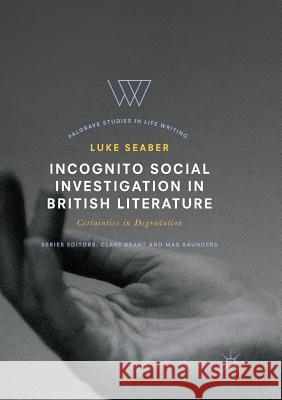Incognito Social Investigation in British Literature: Certainties in Degradation » książka
topmenu
Incognito Social Investigation in British Literature: Certainties in Degradation
ISBN-13: 9783319845326 / Angielski / Miękka / 2018 / 274 str.
Kategorie:
Kategorie BISAC:
Wydawca:
Palgrave MacMillan
Seria wydawnicza:
Język:
Angielski
ISBN-13:
9783319845326
Rok wydania:
2018
Wydanie:
Softcover Repri
Ilość stron:
274
Waga:
0.34 kg
Wymiary:
21.01 x 14.81 x 1.52
Oprawa:
Miękka
Wolumenów:
01
Dodatkowe informacje:
Wydanie ilustrowane











